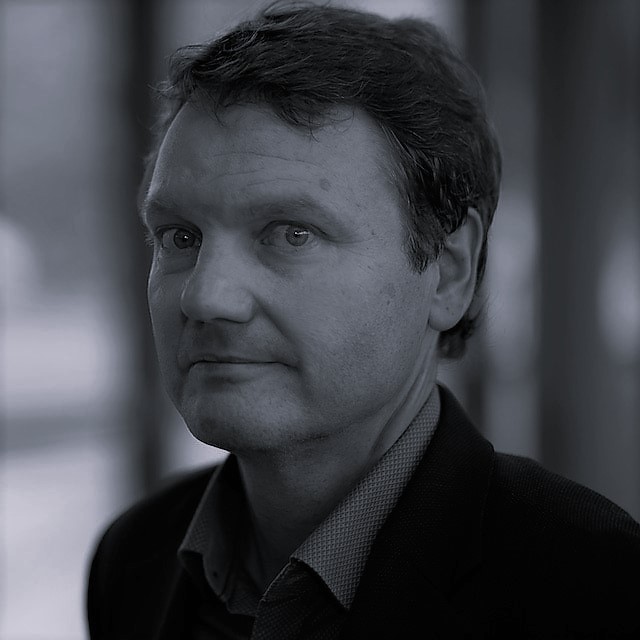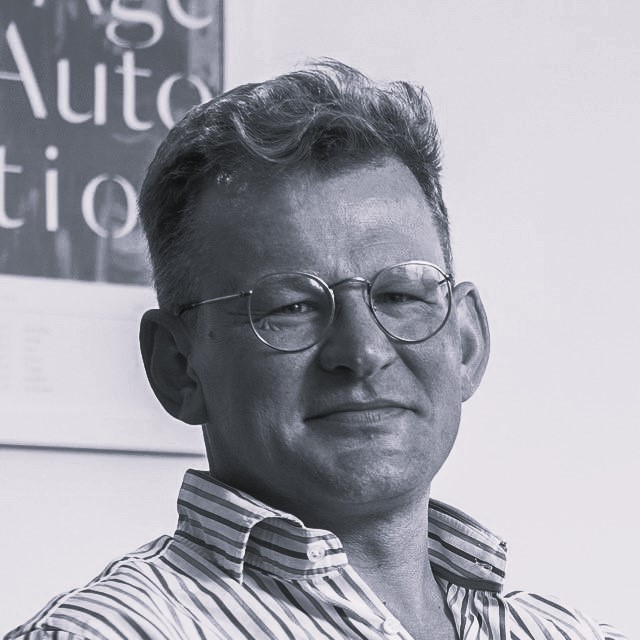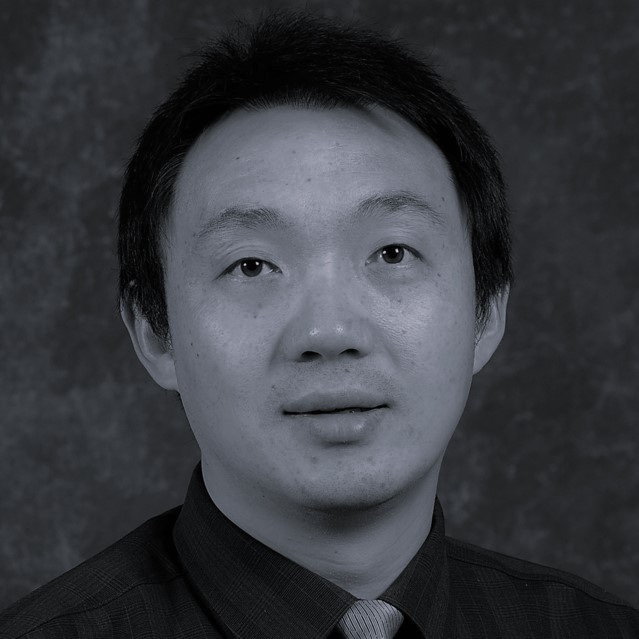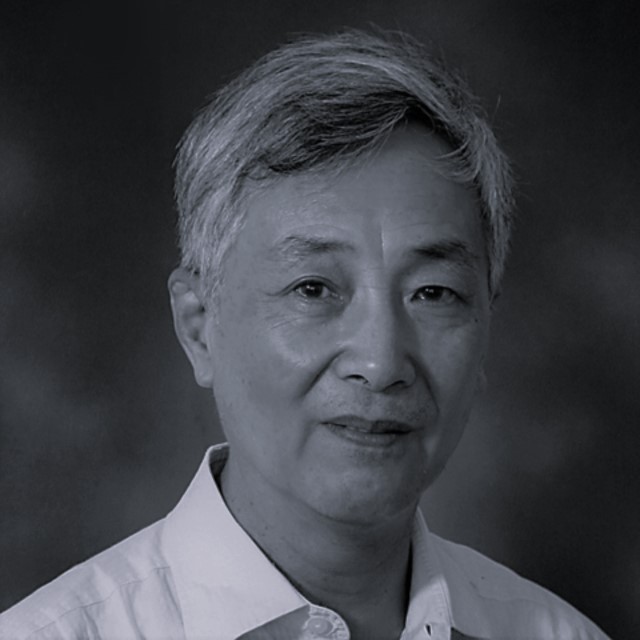
Marco Campi
University of Brescia
Italy
Scenario-based and Data Driven MPC
Marco Claudio Campi is a professor of Automatic Control at the University of Brescia, Italy, where he has taught topics related to data-driven control, systems theory and inductive methods for more than twenty-five years. He has been a distinguished lecturer of the Control Systems Society on three terms and, until recently, he has served as the chair of the Technical Committee IFAC on Modeling, Identification, and Signal Processing. He is a Fellow of IEEE and a Fellow of IFAC. In year 2008, he received the IEEE CSS George S. Axelby outstanding paper award for the article "The Scenario Approach to Robust Control Design". Marco Campi has delivered plenary addresses at major conferences, including CDC, MTNS, and SYSID. His research interests include: data-driven decision making, stochastic control, epistemology, and the foundations and interpretation of probability theory. .

Li Dai
BIT
China
Distributed MPC
Li Dai received the B.S. degree in Information and Computing Science in 2010 and the Ph.D. degree in Control Science and Engineering in 2016 from the Beijing Institute of Technology, Beijing, China. From March 2017 to July 2017, she was with the Griffith University, Australia, as a Research Fellow, where she worked on distributed control. From October 2017 to October 2018, she held a visiting position at Oxford University, UK, where she worked on model predictive control. Li Dai is currently an associate professor with the School of Automation, Beijing Institute of Technology. Her main research interests include model predictive control, distributed control, data-driven control, and cloud control systems.

Sebastien Gros
NTNU
Norway
Optimization and Learning for MPC
Sebastien Gros received his Ph.D. degree from EPFL, Switzerland, in 2007. After a journey by bicycle from Switzerland to the Everest base camp in full autonomy, he joined an R&D group hosted at Strathclyde University focusing on wind turbine control. In 2011, he joined the university of KU Leuven, where his main research focus was on optimal control and fast NMPC for complex mechanical systems. He joined the Department of Signals and Systems at Chalmers University of Technology, Göteborg in 2013, where he became associate Prof. in 2017. He is now full Prof. at NTNU, Norway and guest Prof. at Chalmers. His main research interests include numerical methods, real-time optimal control, reinforcement learning, autonomous vehicles and the optimal control of energy-related applications.

Lars Grüne
University of Bayreuth
Germany
Deterministic and Economic MPC
Lars Grüne has been Professor for Applied Mathematics at the University of Bayreuth, Germany, since 2002. He received his Diploma and Ph.D. in Mathematics in 1994 and 1996, respectively, from the University of Augsburg and his habilitation from the J.W. Goethe University in Frankfurt/M in 2001. He held visiting positions at the Universities of Rome `Sapienza' (Italy), Padova (Italy), Melbourne (Australia), Paris IX - Dauphine (France) and Newcastle (Australia). Prof. Grüne is Editor-in-Chief of the journal Mathematics of Control, Signals and Systems (MCSS) and Associate Editor of various other journals, including the Journal of Optimization Theory and Applications (JOTA), Mathematical Control and Related Fields (MCRF) and the IEEE Control Systems Letters (CSS-L). His research interests lie in the area of mathematical systems and control theory with a focus on numerical and optimization-based methods for nonlinear systems.

Karl Johansson
KTH
Sweden
Receding Horizon Control Under Temporal Logic Constraints
Karl H. Johansson is Professor with the School of Electrical Engineering and Computer Science at KTH Royal Institute of Technology in Sweden and Director of Digital Futures. He received MSc degree in Electrical Engineering and PhD in Automatic Control from Lund University. He has held visiting positions at UC Berkeley, Caltech, NTU, HKUST Institute of Advanced Studies, and NTNU. His research interests are in networked control systems and cyber-physical systems with applications in transportation, energy, and automation networks. He is President of the European Control Association and member of the IFAC Council, and has served on the IEEE Control Systems Society Board of Governors and the Swedish Scientific Council for Natural Sciences and Engineering Sciences. He has received several best paper awards and other distinctions from IEEE, IFAC, and ACM. He has been awarded Swedish Research Council Distinguished Professor, Wallenberg Scholar with the Knut and Alice Wallenberg Foundation, Future Research Leader Award from the Swedish Foundation for Strategic Research, the triennial IFAC Young Author Prize, and IEEE Control Systems Society Distinguished Lecturer. He is Fellow of the IEEE and the Royal Swedish Academy of Engineering Sciences.

Eric Kerrigan
Imperial College London
United Kingdom
Numerical Methods for Embedded Processors
Eric Kerrigan is Professor of Control and Optimization at Imperial College London, where he has a joint appointment in the Department of Electrical and Electronic Engineering and Department of Aeronautics. His research focuses on the design of efficient numerical methods for solving optimal control and estimation problems in real-time, with applications in the design of aerospace, renewable energy, and information systems. He is on the IEEE Control Systems Society Board of Governors and is Chair of the IFAC Technical Committee on Optimal Control. He is a Senior Editor of the IEEE Transactions on Control System Technology and an Associate Editor of the IEEE Transactions on Automatic Control.

Shu Lin
University of Chinese Academy of Sciences
China
MPC for Urban Traffic Control and Optimization
Shu Lin is currently an Associate Professor of School of Computer Science and Technology in University of Chinese Academy of Sciences. She received two PhD Degrees for systems and control, from Delft University of Technology and Shanghai Jiao Tong University respectively, in 2011 and 2013, and did PostDoc research in Shanghai Jiao Tong University. Shu Lin’s main research interests are the modeling, control and optimization of complex large-scale systems, especially the applications on urban road networks. She published about 40 papers in this area, involving new deterministic/stochastic modeling methods and MPC algorithms, MPC based integrated traffic control method for reducing travel delays and emissions, multi-level hierarchical control structures and algorithms for large scale urban traffic networks etc. According to the Google Scholar, her H index is 14, and the publications have been cited 1048 times in total. As a project leader, she is/was responsible for 8 projects, including several granted by the National Science Foundation of China (NSFC). She also participated many projects, such as the National Key R&D Program of China, the International Cooperation Project between National Science Foundation of China (NSFC) and Netherlands Organization for Scientific Research (NWO), the Beijing Natural Fund, etc. At present, she is a member of IFAC Technical Committee on Transportation Systems. She has reviewed many papers for the IEEE Transactions on Intelligent Transportation Systems, etc. Since 2013 she has served as the IPC member and associate editor for the IEEE Conference on Intelligent Transportation Systems every year, and organized special sessions.

Gabriele Pannocchia
University of Pisa
Italy
State Estimation and System Identification for MPC
Gabriele Pannocchia received the Ph.D. degree in Chemical Engineering from the University of Pisa (Italy) in 2002, where he is Full Professor since 2020. He held a Visiting Associate position at the University of Wisconsin - Madison (WI, USA) in 2000/2001 and in 2008. Dr. Pannocchia is author of about 120 papers in international journals, book chapters and in proceedings of international conferences. Dr. Pannocchia is Senior Editor for the Journal of Process Control, served as Associate Editor of Automatica, and he is the Vice-Chair for Education of the IFAC TC 2.4 (Optimal Control). Dr. Pannocchia was IPC co-chair of the IFAC Symposium DYCOPS 2013 held in Mumbai (India), Area Co-Chair/Associate Editor in IFAC DYCOPS 2016, IFAC World Congress 2017, IFAC NMPC 2018, UK Control 2018, IFAC World Congress 2020. He has been plenary speaker at 4th IEEE Colombian Conference on Automatic Control, and keynote speaker in several international congresses (IFAC DYCOPS 2010, IFAC NMPC 2015, IFAC DYCOPS 2016, IFAC ADCHEM 2018). Dr. Pannocchia was the NOC Chair of IFAC ADCHEM 2021 and IPC Chair of IFAC NMPC 2021. His research interests include: model predictive control systems, process simulation and optimization, numerical optimization, multivariable systems identification and performance monitoring, optimal planning and control for robotic systems.

Saša Raković
BIT
China
Tube MPC
Saša V. Raković received the PhD degree in Control Theory from Imperial College London. His PhD research was awarded the Eryl Cadwaladr Davies Prize 2005 as the best PhD thesis in the EEE Department of Imperial College. He has been affiliated with a number of universities worldwide, including, inter alia, Imperial College London, ETH Zurich and Oxford University. He is currently a full professor with the School of Automation at Beijing Institute of Technology. Saša V. Raković's main interests and contributions lie within the areas of synthesis of control systems, analysis of dynamical systems, and decision making under constraints and uncertainty.

Ricardo Sanfelice
University of California at Santa Cruz
USA
MPC for Hybrid Dynamical Systems
Ricardo Sanfelice is Professor at the Department of Electrical and Computer Engineering, University of California at Santa Cruz. He received the B.S. degree in Electronics Engineering from the Universidad Nacional de Mar del Plata, Buenos Aires, Argentina, in 2001. He joined the Center for Control, Dynamical Systems, and Computation at the University of California, Santa Barbara in 2002, where he received his M.S. and Ph.D. degrees in 2004 and 2007, respectively. During 2007 and 2008, he was a Postdoctoral Associate at the Laboratory for Information and Decision Systems at the Massachusetts Institute of Technology. He visited the Centre Automatique et Systemes at the Ecole de Mines de Paris for four months. From 2009 to 2014, he was Assistant Professor in the Aerospace and Mechanical Engineering at the University of Arizona, where he was also affiliated with the Department of Electrical and Computer Engineering and the Program in Applied Mathematics.

Yang Shi
University of Victoria
Canada
A Robust Model Predictive Control Framework for Autonomous Intelligent Mechatronic Systems
Yang Shi received the Ph.D. degree in marine engineering from Northwestern Polytechnical University (Xi’an, China) in 1998, and the Ph.D. degree in electrical and computer engineering from the University of Alberta (Edmonton, Canada) in 2005. From 2005 to 2009, he was an Assistant Professor and an Associate Professor in the Department of Mechanical Engineering, University of Saskatchewan, Saskatoon, SK, Canada. In 2009, he joined the University of Victoria, Victoria, BC, Canada, where he is currently a Professor in the Department of Mechanical Engineering. His current research interests include networked and distributed systems, model predictive control (MPC), cyber-physical systems (CPS), robotics and mechatronics, navigation and control of autonomous systems (AUV and UAV), and energy system applications. Dr. Shi received the University of Saskatchewan Student Union Teaching Excellence Award in 2007, and the Faculty of Engineering Teaching Excellence Award in 2012 at the University of Victoria (UVic). He is the recipient of the JSPS Invitation Fellowship (short-term) in 2013, the UVic Craigdarroch Silver Medal for Excellence in Research in 2015, the 2016 IEEE Transactions on Fuzzy Systems Outstanding Paper Award, the Humboldt Research Fellowship for Experienced Researchers in 2018. He is the VP for Conference Activities of IES (2023-2023) and was a member of the IES Fellow Evaluation Committee during 2017-2019; he is the Chair of IEEE IES Technical Committee on Industrial Cyber-Physical Systems. Currently, he is Co-Editor-in-Chief for IEEE Transactions on Industrial Electronics; he also serves as Associate Editor for Automatica, IEEE Transactions on Automatic Control, etc. He is General Chair of the 2019 International Symposium on Industrial Electronics (ISIE) and the 2021 International Conference on Industrial Cyber-Physical Systems (ICPS). He is a Fellow of IEEE, ASME, Engineering Institute of Canada (EIC), and Canadian Society for Mechanical Engineering (CSME), and a registered Professional Engineer in British Columbia, Canada.

Yugeng Xi
Shanghai Jiao Tong University
China
MPC for Urban Traffic Control and Optimization
Yugeng Xi is a Chair Professor of Shanghai Jiao Tong University (SJTU). He received Dr.-Ing. degree in electrical engineering at Technical University Munich, Germany in 1984. Since then, he has been with the Department of Automation, SJTU, and as a professor since 1988. Professor Xi’s research interests include model predictive control, large scale complex systems, and intelligent robotic systems. Particularly he has been working in the area of predictive control for more than 35 years. Oriented to the needs of predictive control applications, he has published more than 300 papers, focusing on developing quantitative analysis theory of predictive control systems, novel predictive control strategies and methods for complex industrial processes and large scale systems, robust model predictive control theory, and generalizing the predictive control principles. He published the first book on predictive control in China, “Predictive Control”, early in 1993. This book and several survey papers on predictive control were highly cited. Its revised version was published in 2013. The enhanced English version “Predictive Control: Fundamentals and Developments” was published by John Wiley & Sons Inc. in 2019. Professor Xi was the Vice Chair of the IFAC TC Large Scale Complex Systems (TC5.4), the Chair of ACA (Asian Control Association), the Vice President of CCA (Chinese Association of Automation) etc. Currently he is an advisory committee member of ACA, an honorary council member of CCA, and an advisory committee member of the TC Control Theory, CCA.